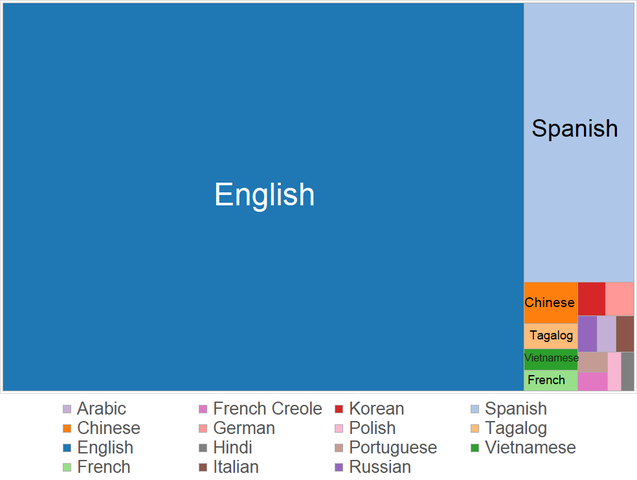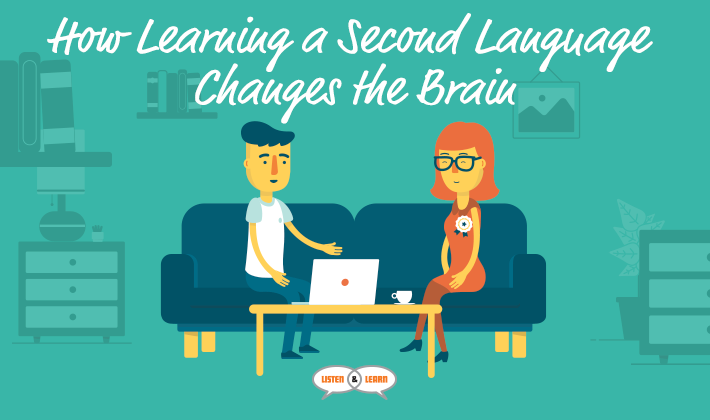Brain Benefits of Being Bilingual
“Americans who travel abroad for the first time are often shocked to discover that, despite all the progress that has been made in the last 30 years, many foreign people still speak in foreign languages.”
– Dave Barry
I have always envied those raised bilingually. Those who slip so easily from one tongue to another. The casual manner in which a second language can be referenced in order to clarify or punctuate a situation and the off-hand remark that such-and-such an emotion can’t really be expressed in English. I say envy and not respect because those who grow up speaking two languages do it effortlessly. I save my respect for those who have had to learn second languages, and third. As a kind of polyglot myself I know the hard, humiliating slog it is to try and reach a level of competence in another language.

Tree Map of Languages in the US: Photo via Wikipedia
Language in the US
To no surprise, as we all know, Americans are on the low-end of bilingual populations worldwide at about 19% (and most of these are either immigrants or first-generation citizens), which is not surprising as it is both a huge country and uses what is widely considered the international language as it’s primary language. Having gained the role of lingua franca, and isn’t that an ironic term now, English isn’t even close to being the most-spoken primary language, but it is the language of business which is why so many people globally speak it. Compared to bilingual rates around the world (Scandinavia tops 95%), the United States is essentially a monolingual country. Perhaps this will change though as brain scientists find more and more that being bilingual contributes to enhanced cognitive ability and tends to maintain brain health into old age.
The benefits of learning a second language are far-reaching
Researchers from Northwestern University concluded after a study of some 100 students, of which 26 were bilingual, that speaking a second language is a form of brain training that fine tunes the mind. Bilingual students were better able to tune out chatter and concentrate in noisy atmospheres.
Other studies have shown that the cognitive benefits are the same for those who were raised bilingual as those who learned a second language later in life. Scientists are careful to distinguish between the kind of focus, attention and fluency exhibited by bilingual subjects and original intelligence. Language is, after all, a social construct and by no means indicates how smart a person is.

Photo via Flickr
Much of the research being done today on the effects of a second language on the brain is pointed at long-term brain health. Studies continually conclude that speaking two languages helps to protect the brain from mental decline in old age. Compared to other activities such as puzzle-solving and playing a musical instrument, speaking a second language can be equally beneficial for patients with Alzheimer’s or other conditions associated with dementia.
And if for no other reason, speaking another language is cool. You can use it to wow your friends, impress your boss, or as a way to find a mate if all available candidates in your own language group have fallen short of your qualifications. Pick one up today (a language) and stay sharp into your wispy golden years.



